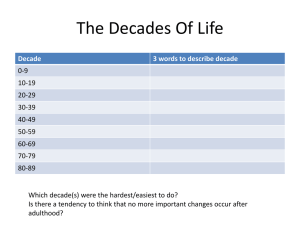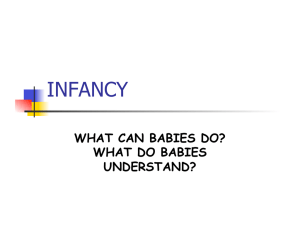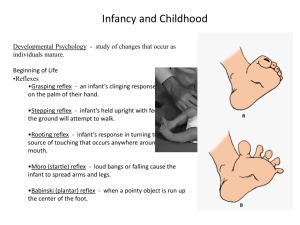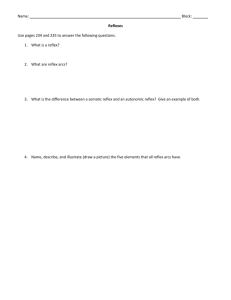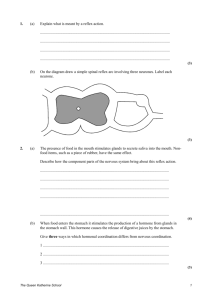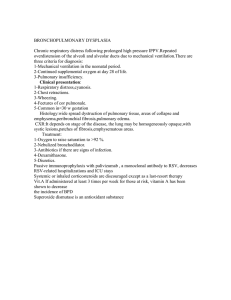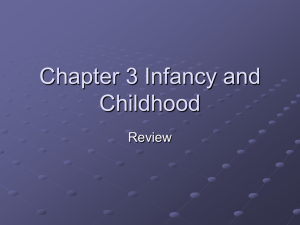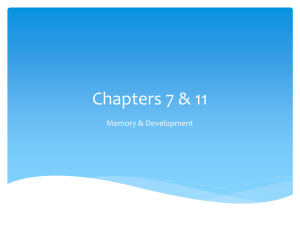Psych 200: Quiz Two Topics Newborn readiness for life Breathing
advertisement
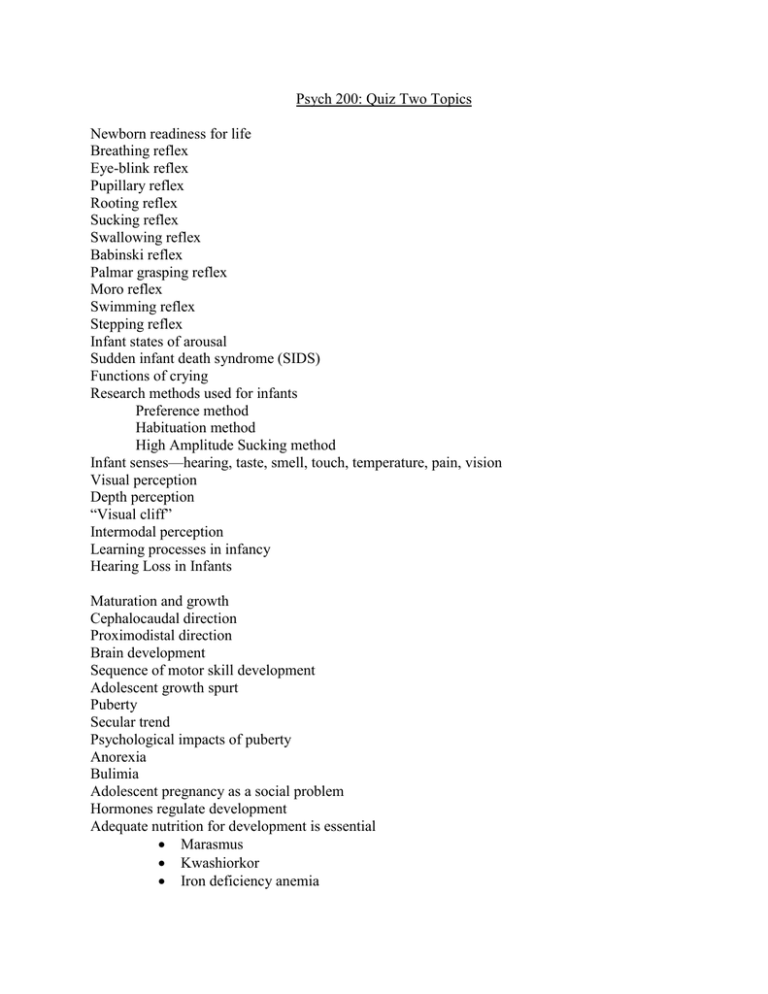
Psych 200: Quiz Two Topics Newborn readiness for life Breathing reflex Eye-blink reflex Pupillary reflex Rooting reflex Sucking reflex Swallowing reflex Babinski reflex Palmar grasping reflex Moro reflex Swimming reflex Stepping reflex Infant states of arousal Sudden infant death syndrome (SIDS) Functions of crying Research methods used for infants Preference method Habituation method High Amplitude Sucking method Infant senses—hearing, taste, smell, touch, temperature, pain, vision Visual perception Depth perception “Visual cliff” Intermodal perception Learning processes in infancy Hearing Loss in Infants Maturation and growth Cephalocaudal direction Proximodistal direction Brain development Sequence of motor skill development Adolescent growth spurt Puberty Secular trend Psychological impacts of puberty Anorexia Bulimia Adolescent pregnancy as a social problem Hormones regulate development Adequate nutrition for development is essential Marasmus Kwashiorkor Iron deficiency anemia Obesity Nonorganic failure to thrive Deprivation dwarfism Chapter 7—Cognitive Development: Piaget’s Theory & Vygotsky’s Sociocultural Viewpoint Cognition Cognitive development Piaget’s background Genetic epistemology Cognitive equilibrium How we gain knowledge Scheme, organization, adaptation, assimilation, accommodation Stages of cognitive development Sensorimotor stage Problem solving, imitation, object permanence Preoperational stage Symbolism, animism, egocentrism, appearance/reality distinction, centration, conservation, decentration, reversibility Concrete operational stage Compare preoperational and concrete operational thinking Formal operational stage Hypothetical thinking Inductive reasoning Piaget’s contributions and criticisms of his theories Vygotsky’s sociocultural theory Interaction with children’s environment Ontogenetic, microgenetic, phylogenetic, & sociohistorical development Tools of intellectual adaptation Zone of proximal development Scaffolding Egocentric speech Private speech Chapter 8—Cognitive Development: Information –Processing Perspectives Compare computer operations to human mind Fuzzy trace theory Development of attention Attention span, selective attention, ADHD, meta attention Memory development Event memory, autobiographical memory, strategic memory, mnemonics Infantile amnesia Scripted memory Children as eyewitnesses Analogical reasoning Development of arithmetic skills
